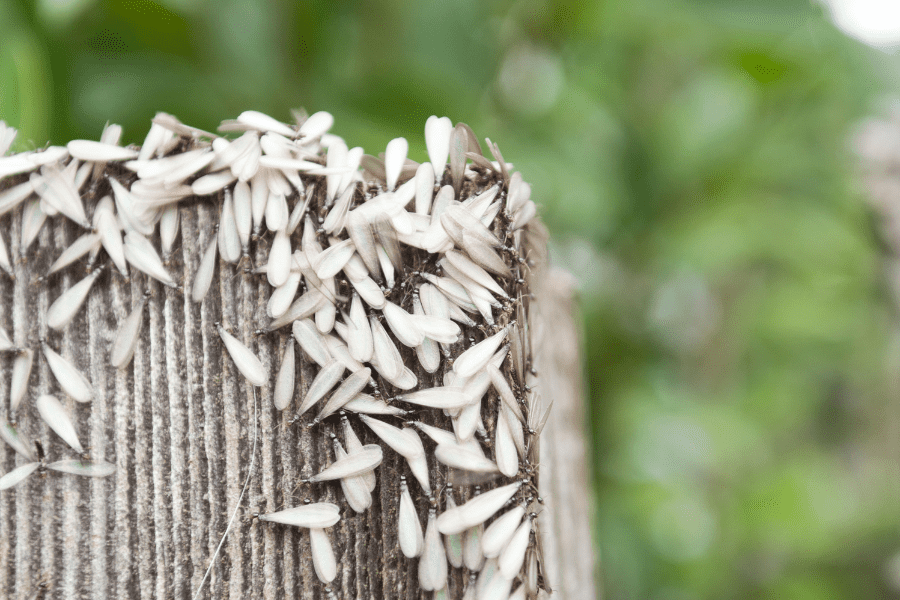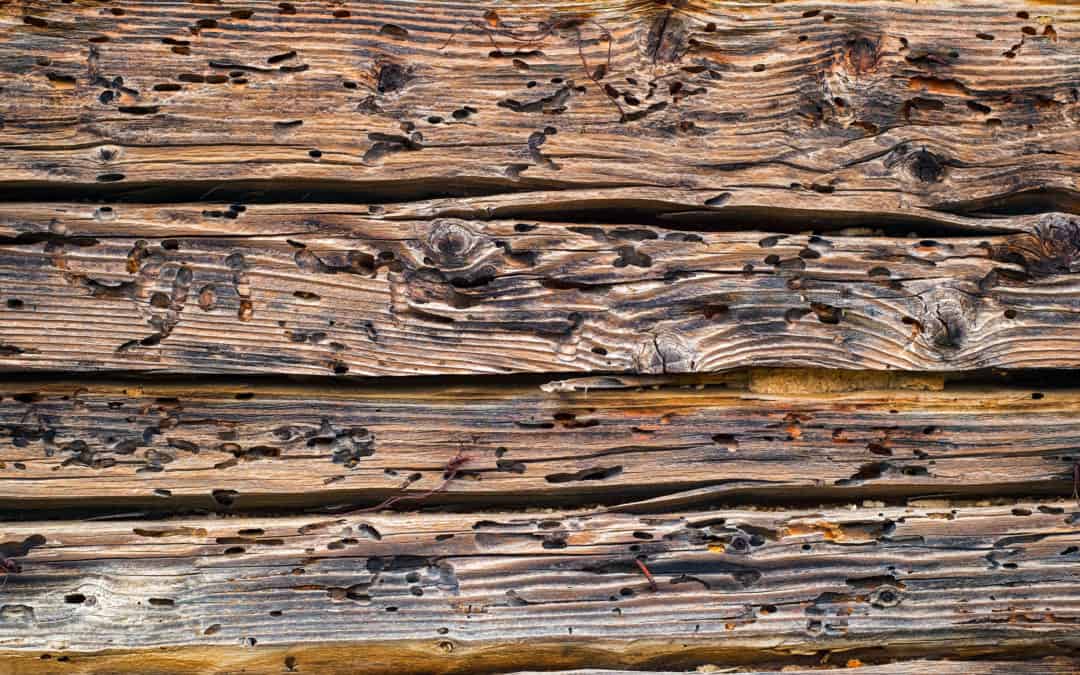READY TO GET STARTED?
REQUEST A FREE ESTIMATE
Fill out the form below or call (336) 226-1448 for a free, no-obligation estimate.

Once the cold weather begins to creep away is when we should begin to see swarming termites. Especially after a big rainfall, mature winged adults will swarm from their original nesting site in hopes of forming new colonies. The most common termite you will see swarming is the Eastern subterranean termite, which is native to North Carolina. Here are some fast facts about these termites:
Swarming is beneficial when creating new colonies. Termites swarm after a colony has reached a certain capacity and is ready to expand. This normally happens once per year for most colonies. Hundreds or even thousands of swarmers, also known as alates, are produced with the sole purpose of reproduction and expansion.
Swarming can occur indoors or outdoors. They cannot survive indoors because of the lack of soil to colonize. If found indoors, they are usually found near windows and light fixtures as they are attracted to light. Whether indoors or outdoors, they usually can’t cause damage. As swarmers, they can’t bite, sting, or chew. The presence of swarms indicates that a colony is nearby, though; so, although the swarmers can’t cause damage, the nearby colony can.
If you begin to see swarming termites and aren’t sure if your home has become infested, be sure to give your local termite control company a call and they can inspect your property and set up a proactive termite control plan.

It’s estimated that termites cause billions of dollars worth of damage annually in the United States. While they primarily feed on wood, they can also damage books, insulation, and swimming pool liners and filters. They like to wreak havoc on trees, shrubs, and plants that are in bad health. Termites can infest buildings at any time. This can be particularly troublesome when buying or selling a home. A termite inspection and report are usually required as a condition of sale of a home.
Signs of Damage
When signs of termite damage surface, the infestation has often been there for years with extensive damage already sustained. Some signs of termites in your home include:
Significant damage from termites can have an effect on the structural integrity of your home and can even cause ceilings and floors to collapse. Termites can also ruin furniture and flooring.
Damage Costs
One question that many homeowners have is if termite damage is covered under a homeowner’s insurance policy. Unfortunately, in most cases the answer is no. Homeowner’s insurance typically does not cover termite damage or removal because it can usually be prevented through routine home maintenance. However, you should always check with your insurance provider to see what you are and aren’t covered for.
Prevention
Termites can be prevented with scheduled periodic professional inspections which can help identify signs of infestations early. This can help keep repair costs down and the damage to a minimum. Any professional termite control plan should eliminate termites, prevent future termite infestations, and prevent termite damage. If you suspect that you have a termite problem or want to have an inspection done, contact your local pest control company.
Buying a home leaves you with hundreds of things to consider and decide on. From furniture to renovations to insurance, there’s a lot to take in! One thing that usually doesn’t come to mind immediately is termite control.
Termites can cause serious damage to your home and that damage is usually not covered by homeowner’s insurance policies. Most times, you won’t even think about it until the damage is already done. However, there are steps you can take to prevent termite damage. With the Sentricon Always Active® System and a termite provider’s inspection, your home can be protected 24/7/365.
So, what are some benefits of Sentricon Termite Protection?
Termite protection might not be at the top of your list, but when you think about the $5 billion in damage that termites cause every year, it is something to highly consider. If you’re purchasing a new construction home, contact your builder about what they have to offer your home in terms of termite protection.
If you have questions about the right type of termite protection or warranty for your home, give your local termite control provider a call. They will be able to answer all of your questions so you can make the right decision for your home and family.